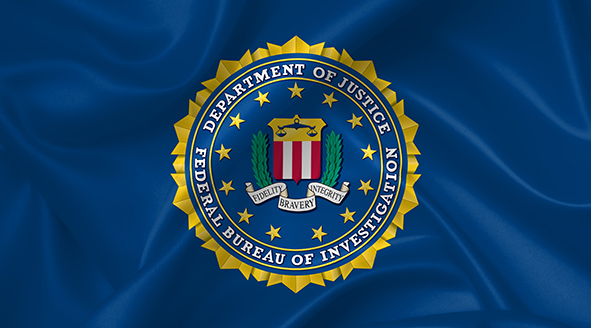Around this time last year we reported on the FBI’s cybercrime statistics for 2021. Alarmingly, the UK had the second highest number of victims, only outdone by the US.
The latest report shows a very similar trend. Whilst the UK’s figure has gone down slightly from 303,949 to 284,291 it is still way higher than other countries, the rest of the world (aside from the US) reporting just 24,353 victims, down from 25,002.
As we touched on last year, the figure is gigantic, and worrying, but we must note that our numbers are probably high because we have strong reporting mechanisms, recording and taking action against cybercrimes.
Numbers are dropping, but they are a drop in the ocean
Whilst our numbers are enormous, they give a small glimmer of hope, seeing the figures go down rather than up. However, what we must also be aware of is that many, many cybercrimes go unreported.
Do you know a friend or relative that’s been hacked? Chances are, if it was a small attack, with little or no financial loss, it won’t have been reported. How many of these have taken place? Nobody knows!
Also, how many businesses have decided to try and protect their reputation (and prevent a visit by the ICO) by covering up a cyberattack? Again, this is a figure that we will never have.
Last year we reported on the cold hard facts of cybercrime and how we can protect ourselves. Rather than repeat ourselves, this year we’re concentrating on the importance of reporting cybercrime.
Reporting
We don’t want to see numbers increase but we do want to fight the cybercriminals. Aside from equipping ourselves with layers of cybersecurity, educating ourselves and putting policies in place, we can also make sure we know how to report cyber incidents (and do so when we’re attacked).
Why report?
Below we give a comprehensive list of reasons why it’s important for businesses to report attacks, but we must emphasise that it’s also vital for domestic victims to have their incident recorded.
Early Detection and Mitigation: Reporting cyberattacks promptly allows cybersecurity professionals and law enforcement agencies to detect and respond to the attack in a timely manner. The earlier an attack is detected, the better the chances of mitigating its impact and preventing further damage.
Preventing Future Attacks: Reporting cyberattacks helps security experts gather information about the attack techniques, tools, and vulnerabilities exploited. This information can be used to develop better security measures and safeguards to prevent similar attacks in the future.
Legal and Regulatory Compliance: Different sectors will be required to report certain types of cyber incidents, especially those involving data breaches. Failure to report such incidents can result in legal consequences and fines.
Protecting Others: Sharing information about cyberattacks helps protect other potential victims. Cybercriminals often reuse attack methods, so knowing about one attack can help others prepare and defend against similar threats.
National Security: In cases where cyberattacks have national security implications, reporting is crucial for the protection of critical infrastructure and sensitive information. It allows government agencies to take appropriate action to defend against cyber threats and potentially attribute the attack to specific threat actors.
Insurance Claims: If an organisation has cybersecurity insurance, reporting a cyberattack is typically a requirement to make a claim. Failure to report the incident may result in the denial of insurance coverage.
Reputation Management: Publicly acknowledging and reporting a cyberattack can demonstrate transparency and responsibility. This can help maintain trust with customers, partners, and stakeholders. Conversely, attempting to conceal an attack may lead to greater reputational damage if the incident becomes public.
Global Collaboration: Reporting cyberattacks contributes to global efforts to combat cybercrime. Cyber threats often cross borders, and international cooperation is essential in identifying and apprehending cybercriminals.
Forensic Analysis: Reporting cyberattacks provides digital forensic experts with valuable data to investigate the incident thoroughly. This analysis can help determine the extent of the breach, the methods used, and potential attribution, aiding in the pursuit of legal actions against the perpetrators.
Learning and Improvement: Analysing reported cyberattacks allows organisations and the cybersecurity community to learn from past incidents. This knowledge can be used to enhance cybersecurity strategies, train personnel, and develop more robust security measures.
In summary, reporting cyberattacks is not only a responsible and legal obligation in many cases but also crucial for cybersecurity, national security, and the protection of organisations, individuals, and critical infrastructure. By reporting you will be contributing to collective efforts to combat cybercrime and improve overall cybersecurity.
Where to report?
You can report cyber incidents to several organisations, depending on the nature and severity of the incident. Here are the main organisations you can contact to report cyber incidents:
Action Fraud: Action Fraud is the UK’s national fraud and cybercrime reporting center. You can report cybercrime and fraud incidents online through their website at www.actionfraud.police.uk or by calling 0300 123 2040.
National Cyber Security Centre (NCSC): The NCSC is the UK government’s cybersecurity agency. They provide guidance on cybersecurity and can help organisations respond to cyber incidents. You can contact the NCSC through their website at www.ncsc.gov.uk.
Local Law Enforcement: If you are an individual or a business and you believe you have been a victim of cybercrime, you can also contact your local police force. They may be able to assist and refer your case to relevant authorities.
Internet Service Provider (ISP): If you are a victim of a cyber incident, you can also contact your Internet Service Provider (ISP) to report the incident. They may be able to offer assistance or investigate any issues related to your internet connection.
When reporting a cyber incident, it’s essential to provide as much information as possible about the incident, including details about what happened, any suspicious emails or messages received, and any financial losses incurred. It’s also advisable to keep records of the incident, such as screenshots or copies of any communication related to the incident.
In case of a severe cyber incident or a data breach involving personal data, organisations are also obligated to report the incident to the Information Commissioner’s Office (ICO). The ICO is responsible for regulating data protection in the UK and can provide guidance on data breach reporting.
Remember that it’s crucial to act quickly when you suspect a cyber incident to mitigate any potential damage and protect sensitive information.
Not sure what to do? Get in touch and we’ll help guide you through the reporting process, and any other cybersecurity issues that you’re concerned about. By working together we can all make an impact in the ongoing fight against cybercrime.





